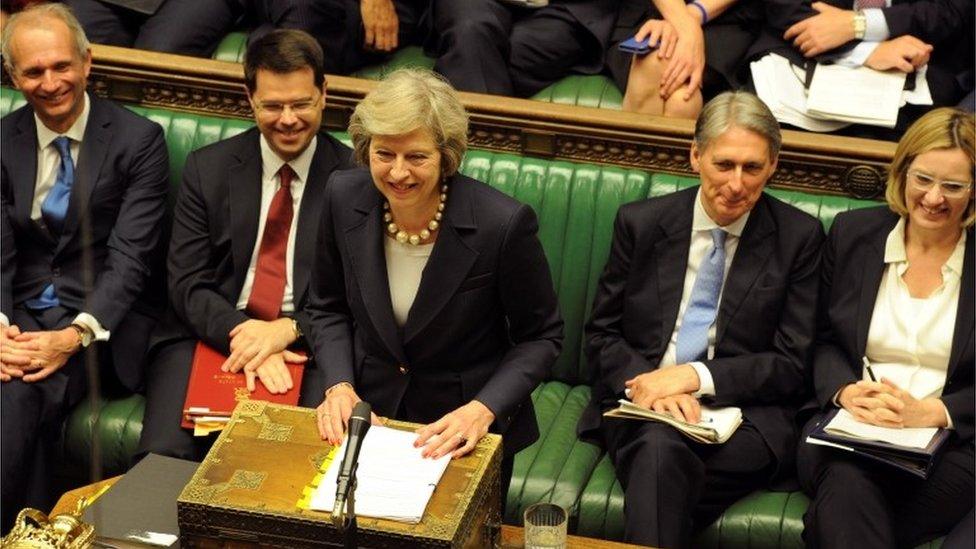Theresa May: UK will be 'global leader in free trade'
- Published
Theresa May: "The message for the G20 is that Britain is open for business"
The UK will be a "global leader" in free trade following the Brexit vote, Theresa May has said, as she heads to China for the G20 summit.
Speaking at Heathrow ahead of her first international conference since becoming prime minister, she insisted it was a "golden era" for UK-China relations.
The assurance comes as she faces a row with Beijing over a delayed decision on the Hinkley Point power station.
At the summit, Mrs May will meet one-to-one with US President Barack Obama.
She will also hold talks with other leaders of the world's 20 major economies and is expected to tell them that the UK is "open for business" following the referendum vote to leave the European Union.
Chinese President Xi Jinping will also meet with her but no announcement on the Hinkley Point project is expected.
Before boarding an RAF plane to eastern China, she told reporters: "The message for the G20 is that Britain is open for business, as a bold, confident, outward-looking country we will be playing a key role on the world stage.
"This is a golden era for UK-China relations and one of the things I will be doing at the G20 is obviously talking to President Xi about how we can develop the strategic partnership that we have between the UK and China.
"But I will also be talking to other world leaders about how we can develop free trade around the world and Britain wants to seize those opportunities.
"My ambition is that Britain will be a global leader in free trade."
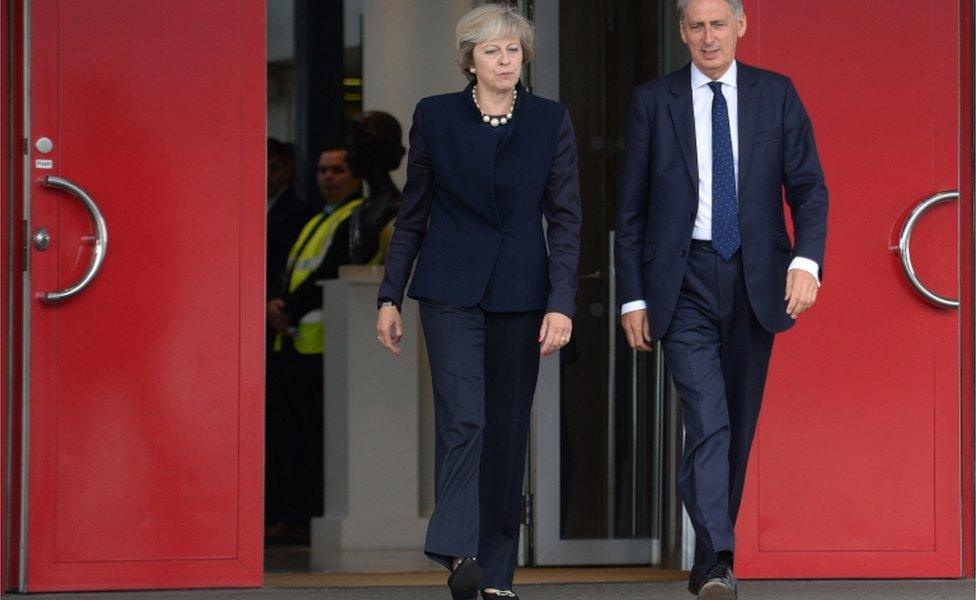
Theresa May and Chancellor of the Exchequer Philip Hammond at Heathrow airport before she boarded the RAF jet to fly to China
In July it was announced that the government would postpone a decision on whether to build Hinkley Point - the first new UK nuclear plant in 20 years - until the early autumn.
The French energy giant EDF, with support from state-owned China General Nuclear, had expected to build the £18bn plant.
'Dependable Britain'
Mrs May's meeting with President Xi is expected to take place on Monday after the two-day G20 summit.
BBC diplomatic correspondent James Landale said it "could prove the most important".
On Hinkley Point, he added: "Her Chinese hosts have invested billions in this and are pushing hard for a positive decision.
"It is a judgement call that will show how open and dependable Britain really is."
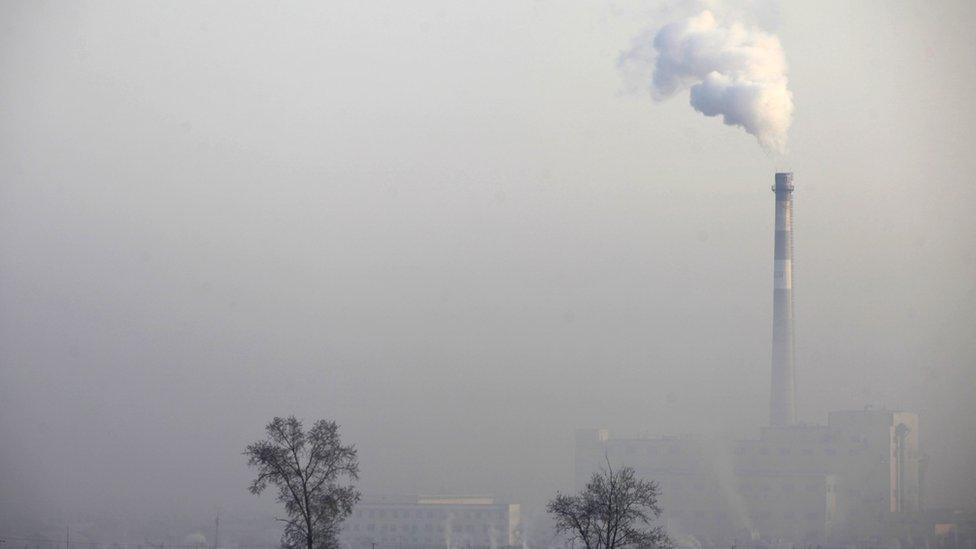
The summit follows China's decision to cut its greenhouse gas emissions
Dame Pauline Neville-Jones, former Conservative security minister told Radio 4's Today programme that day-to-day security issues needed to be ironed out regarding how Hinkley would be run.
"You need to know who is in charge, who you are talking to, where the seat of power is in relation to an investment of this kind so that you have direct communication and there is no fogginess about where the power lies in the relationship," she said.
Other topics due to be discussed by Mrs May at the summit in Hangzhou include curbing the financing of extremist groups and advancing free trade.
During the summit, the prime minister will also hold her first face-to-face talks with Russian President Vladimir Putin.
At her meeting with her Indian counterpart Narendra Modi, the trading relationship between the two countries is expected to dominate the agenda.
Mrs May's talks with President Obama follow the US leader's warning that the UK would be at "the back of the queue" for a trade deal if it voted to leave the European Union.
Meanwhile, China has agreed to cut greenhouse gas emissions with President Xi and President Obama announcing they are formally committing their countries to the climate change agreement reached in Paris at the end of last year.
China is the world's largest emitter of harmful CO2 emissions, which cause climate change.
In the landmark deal struck in December, countries agreed to cut emissions enough to keep the global average rise in temperatures below 2C.
It is the world's first comprehensive climate agreement and will only come into force legally when it is ratified by countries producing 55% of global carbon emissions.
China's decision to ratify the agreement will put pressure on other countries to follow suit
- Published2 September 2016
- Published27 July 2016
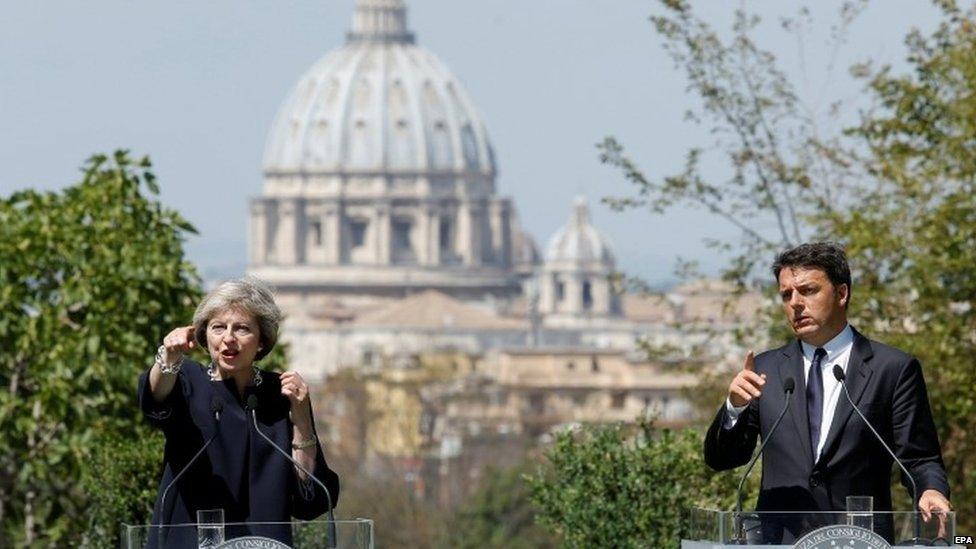
- Published29 July 2016
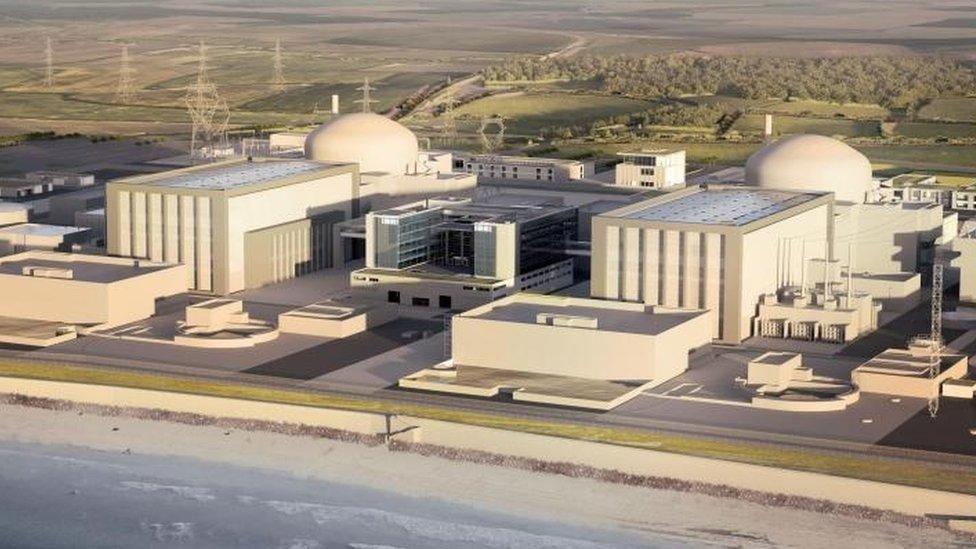
- Published31 August 2016
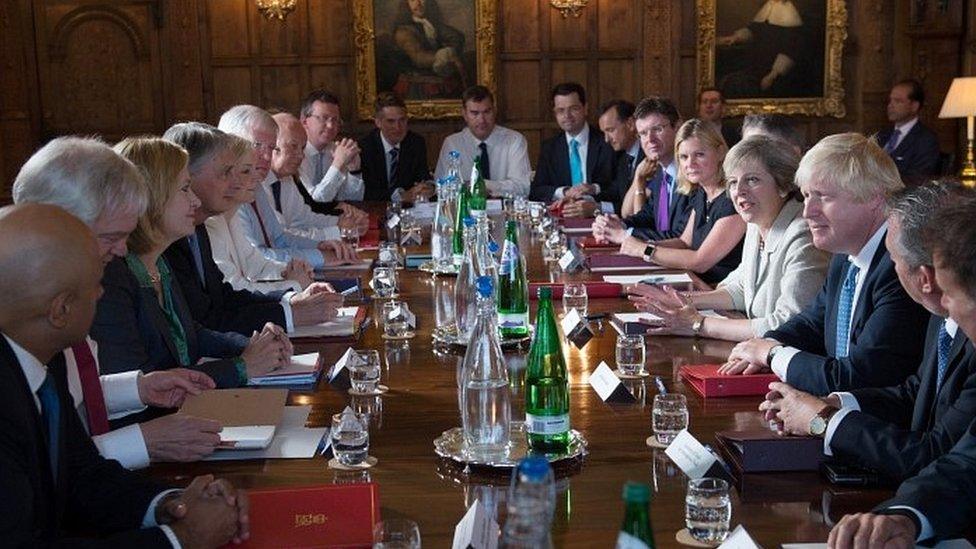
- Published2 September 2016
